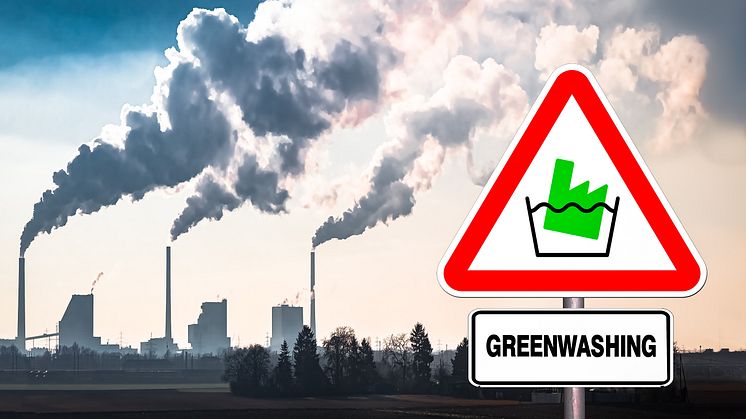
Blog post -
Why companies must urgently greenwash-proof their Sustainability Reports
Sustainability Reports are under intense scrutiny for any sign of greenwashing, in the wake of a United Nations report which insists companies get their climate actions right – but also laments how companies are getting it wrong.
The report titled ‘Integrity Matters: Net Zero Commitments by Businesses, Financial Institutions, Cities and Regions’ was produced by the UN High-Level Expert Group on the Net Zero Emissions Commitments of Non-State Entities, which in turn was appointed by the UN Secretary-General Antonio Guterres.
UN reports don’t always make the most exhilarating reading, but this one is a real gem. Its ten straightforward recommendations are built on credible existing initiatives like Race to Zero and Science Based Targets Initiative. It sets tight universal definitions for “net zero” and “net zero-aligned”. It clarifies that all “non-state actors” need to not only pledge long-term net zero goals but also short-term science-based targets. Detailed transition plans must be presented, showing immediate emissions reduction and capital expenditures.
In other words, everyone is called upon to get real and not just talk the talk, but actually walk the walk. The report outlines five principles for the setting and attaining of net zero targets. Key words:
- Ambitious
- Integrity
- Transparent
- Credible, and
- Fair
The report draws a big fat ‘red circle’ around the greenwashing that has become so prevalent in many companies. Declaring yourself to be net zero by 2050 has all too often meant the company is going to do nothing for a long time, and gladly leave making much-needed investments to others. Score the PR brownie points, save yourself the money and effort, and leave others to clean up the mess.
The UN report underscores the risk of this behavior:
“If greenwash premised upon low-quality net zero pledges is not addressed, it will undermine the efforts of genuine leaders, creating both confusion, cynicism, and a failure to deliver urgent climate action. Which is why, ultimately, regulations will be required to establish a level playing field and ensure that ambition is always matched by action”.
When a city, a state, or a corporation engages in greenwashing, it won’t be long before a shareholder, the media, NGOs, or civil society will publicly scrutinize the veracity of their pledges and expose anything not backed by credible action.
Greenwashing has also become a key concern for regulators, as more and more firms make Net Zero commitments and put ESG labels on various financial products. Several regulators have already made it clear that greenwashing is a material risk and regulatory action will be taken against firms that mislead customers, investors, and other key stakeholders over the sustainability of products and over net zero transition plans.
Examples of greenwashing lawsuits and regulatory action are multiplying fast. In March 2021, Shell was sued in the Netherlands by several environmental groups, led by Milieudefensie, the Dutch wing of Friends of the Earth, for failing to properly manage climate risks. The Dutch court ordered Shell to reduce its overall emissions, including those from fossil fuels it sells, by net 45% by the end of 2030. Shell meanwhile argued it was doing enough and appealed the ruling.
In March 2022, ClientEarth, another environmental group in the UK and a Shell shareholder, sued the Board of Directors of Shell in the High Court of England and Wales. In the lawsuit it held the thirteen Shell Directors personally liable for failing to devise a climate transition strategy that truly aligns with the Paris Agreement, which was argued to be a breach of the Director’s duties under the UK Companies Act.
The news of each the legal actions only made a small dent in Shell’s share price, during a year of vastly increased profitability, but the damage to its brand and credibility was done.
In October 2022 a German consumer group sued Deutsche Bank’s asset management unit DWS for allegedly misrepresenting a fund’s green credentials in marketing materials. Previously, German and US regulators were investigating a whistleblower’s allegations that DWS has exaggerated the sustainability of investments it sold. After German prosecutors raided DWS and Deutsche Bank offices in Frankfurt in June 2022, CEO Asoka Wöhrmann resigned.
In November 2022 Goldman Sachs Asset Management was fined $4 million by the US Securities & Exchange Commission for failing to comply with its own ESG policies, which it had marketed to intermediaries and fund trustees.
These greenwashing scandals have led to the advent of “greenhushing” – some firms now prefer to not speak about their net zero targets, transition plans or other green initiatives for fear of receiving bad press or being sued.
A 2022 survey by climate consultancy South Pole found that of 1,200 private global climate leading companies nearly a quarter did not publicize any green achievements and milestones.
It’s not only legal and reputational risks that make these firm go mum, they may also be uncertain about the true outcomes of their efforts, and their senior management may not have the knowledge or skills to speak publicly about their sustainability work.
Genuine sustainability commitments, the resourcing to deliver them, and the ability to communicate them well, can yield significant financial returns, from enhanced branding, a more loyal client base, a more resilient supply chains, to a more motivated workforce and better talent recruitment and retention, just to name a few. The contributions to more sustainable outcomes can make our planet a better place for generations to come. But all this won’t work without putting integrity first.
Join the free preview and Q&A for our newly launched “How to greenwash-proof your Sustainability Communications” advisory service taking place on April 11. See the event details below.


